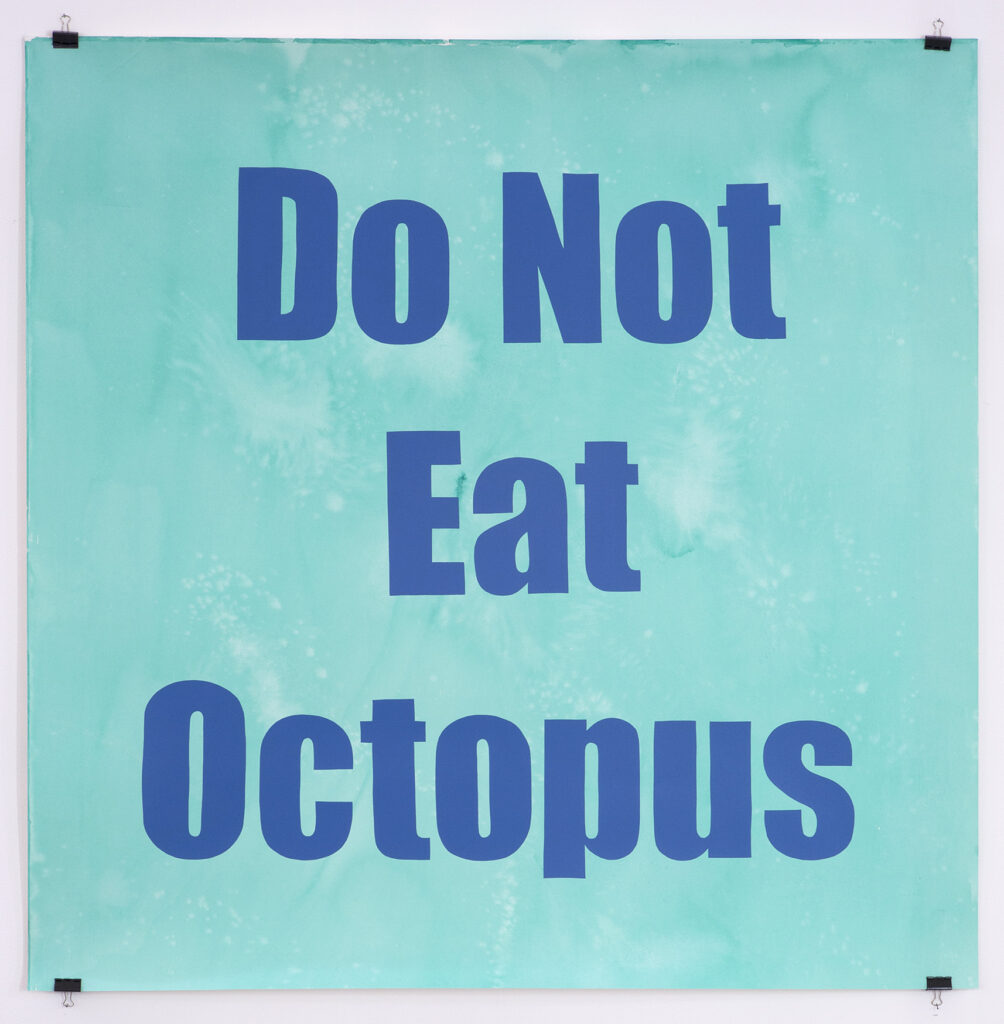
Jeremy Deller, Do Not Eat Octopus, 2017 (silkscreen on acrylic)
“I work on octopuses and squids and things like that, when I’m not eating them. Q.: did you say you eat your experimental subjects? A.: oh, when my wife and I were first married, I had a job on the staff of naples Zoological Station in Italy, and we were very impoverished. So of course, we ate our experimental animals. the only thing we had to do for the laboratory was save their brains. We ate calamari till we got pig-sick of it.”
Interview with Martin Wells, Interviewer claudia dreifus, new York times, december 8, 1998, Section f, p. 5
It seems odd, that the late Martin Wells, one of the world’s foremost experts on cephalopods, had to emphasize in an interview for the new York times in 1998 that “of course” he liked eating octopus. odd, that he felt compelled to drive the point home with such emphasis. odd also, because he recognized them as highly intelligent and fascinating creatures. odd, finally, because we do not think of the 1990s as being particular concerned about the well-being of octopuses. they started receiving protection when used for scientific purposes only in 2013, for example, and even then only in Europe. Yet, it seems, Wells felt the need to make the point that it is okay to eat octopuses. After all, even he does it.
Despite Wells’ reassurance, the pendulum seems to swing into the other direction in recent years. With the recognition and fascination for their mental capacities, we wonder whether we really should continue eating them. As claims for human superiority and power over nature have experienced a serious setback by recent environmental challenges, the octopus furthers doubts. Maybe we are entering the century of the octopus for which Jeremy deller provides the new imperative: DO NOT EAT OCTOPUS.